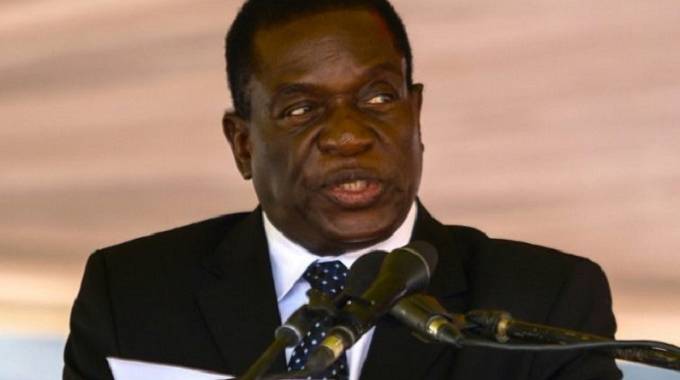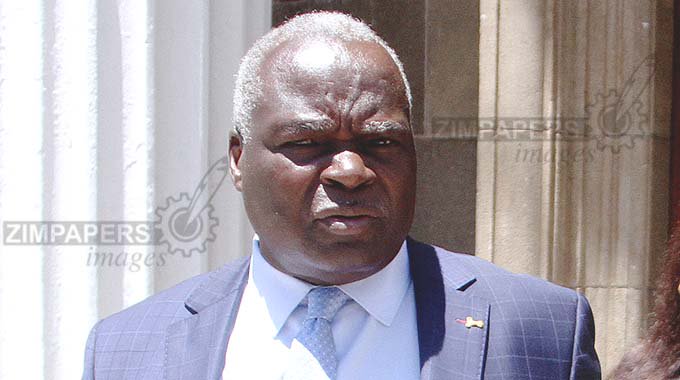EDITORIAL COMMENT: SONA should set tone for economic turnaround for 2nd Republic

PRESIDENT Emmerson Mnangagwa tomorrow officially opens the First Session of the Ninth Parliament of Zimbabwe before presenting his first State of the Nation (SONA) address in front of a joint sitting of the National Assembly and Senate. He will outline the legislative agenda underpinning the Second Republic which will largely be dominated by significant changes to Chapter 14 of the Constitution.
The legislative agenda is also expected to include laws that enhance the country’s attractiveness to investors and streamline investment laws to reduce red tape. President Mnangagwa has already indicated that Government’s thrust is to consolidate the economic reforms that started with incoming of the new dispensation.
He also reiterated the point during his inauguration speech that the focus during his tenure would be on improving the economy. The parliamentarians have also embraced the policy direction given by the President and pledged to speed up passage of laws in the August house. With Parliament dominated by Zanu-PF after winning the polls with a commanding two-thirds majority, this is likely to be a smooth process.
Legislators need to play their role in economic development by passing laws that assist in attracting investors and enhancing the ease of doing business. We urge them to put aside their political differences and work in unison for nation building. Juvenile theatrics in the August house trivialise the role of legislators and we call on MPs from the opposition benches to exercise maturity by respecting the Houses of Parliament bearing in mind that the people of Zimbabwe elected them to champion their causes.
We also welcome proposed amendments to the Constitution designed to streamline the structure of Provincial and Metropolitan councils as part of the devolution plan being pursued by Government.
Chapter 14 provides for National Assembly representatives to sit in both Parliament and the councils.
Parliament has oversight over the councils, which in essence means Chapter 14 of the Constitution as currently subsisting asks MPs to monitor themselves in this regard. Authorities are also wary of creating new and bloated structure that could further strain an already overstretched fiscus. Government plans to introduce wholesale changes to the national governance system by rolling out comprehensive decentralisation and devolution of power and authority to provinces. Authorities are crafting the Provincial and Metropolitan Councils Bill, which will be tabled before the Ninth Parliament.
Primarily though, the Ninth Parliament will be seized with enacting legislation that drives Zimbabwe’s development aspirations, particularly attracting investment and improving the ease of doing business.
Justice, Legal and parliamentary Affairs Minister Mr Ziyambi Ziyambi told our Harare Bureau at the weekend that an amendment to the Constitution was inevitable. “The way (Provincial and Metropolitan Councils) are structured at the moment, all the Honourable MPs within the province sit in the Provincial Councils with all the chiefs and Provincial Councillors.
“You sit there in Parliament, you allocate a budget to the Provincial Council, you go back to the province and sit in the Provincial Council and determine how the budget you allocated is used. Then you go back to Parliament and play an oversight role to things that you have been doing.
“So, perhaps it is one area that I believe the Minister of Local Government will be able to tackle and bring it to us so we look at how we can amend the Constitution and deal with that. “It’s just not appropriate . . . These are some of the issues that need cleaning up, forget about the Provincial Ministers.”
He said a law was being crafted to facilitate operations of Ministers of State in the devolved governance system. Minister Ziyambi said the duties of Ministers of State would be directly linked to growing the provincial economy in line with the national development plan. “In fact Provincial Ministers are actually going to enhance the devolution because they will be key critical players in ensuring that they help in the growth of the provincial GDPs,” said Minister Ziyambi.
“Their thrust now won’t be to do with political activities but to look into the economic activities of the province, particularly how to grow the economy of the province. “We are going to come up with enabling legislation that will give effect to the Provincial Councils. This legislation will spell out the interaction and the work of Provincial Ministers of State will be to enhance the devolution agenda.
“Devolution is some form of decentralisation; we have decentralisation of governmental powers already. But we want to go a step further and have each province manage its own affairs and the Provincial Minister will work towards ensuring that the province grows its economy. So there will be no interference at all.”
Indeed, Government is walking the talk on devolution and we applaud that stance since it will make it possible for provinces to run their affairs independent of central Government thereby enhancing efficiency in service delivery.










Comments